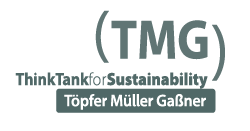True Cost Accounting at COP 26: A new tool to support sustainable food systems transformation
Showing the “hidden costs” of production and revealing the benefits of sustainable food systems
by Polina Korneeva | 2021-12-20

Our food systems are unequal and harmful to natural ecosystems. They account for roughly a quarter of global greenhouse gas emissions, while continuously failing to address world hunger. According to a June 2021 report by the UN Food Systems Summit Scientific Group, the total annual value of food consumed globally is estimated at roughly USD 9 trillion. On the other hand, the food industry generates negative health, environmental and social costs of approximately USD 19.8 trillion. At current prices, food is roughly a third cheaper than it would be if these external expenses were factored into market prices.
True Cost Accounting (TCA) methodologies were used to determine these externalities of our food systems. TCA is a systemic approach that combines data on direct production expenses, such as raw materials and labour, with effects on the natural and social environment in which a company operates. TCA not only shows the “hidden costs” of production; but can reveal benefits of sustainable food systems, as discussed in a recent report produced by TMG and Global Alliance for the Future of Food. The 2021 UN Food Systems Summit recognised TCA as a game changing solution for food system transformation.
TCA as a lever for climate-resilient food systems
This integrated valuation tool was the subject of several sessions at the 26th session of the Conference of the Parties (COP 26) to the UN Framework Convention on Climate (UNFCCC)) in Glasgow.
A COP 26 side event organised by the Food Tank explored the role of investment and TCA as levers for food systems change. During lively discussions, the panelists agreed that the nature of global subsidies and institutional food procurement could be potential drivers of sustainable food sector transformation. For example, subsidies can be effective instruments to steer diets. A recent study found that subsidies for more sustainable meals have a great chance of getting people to eat less carbon-intensive meat products, which contributes to climate change mitigation. Subsidies for vegetable-based meals can similarly help increase vegetable and fruit intake, and improve diets and overall health status.
Unfortunately, these example are an exception. A recent report by the Food and Agriculture Organization of the United Nations (FAO) reveals the close link between agricultural subsidies and environmental degradation. The report finds that almost 90% of an estimated USD 540 billion spent to support agricultural producers annually includes measures that damage human health and the environment. Moreover, it is the agricultural sectors that account for the bulk of pollution, such as meat and dairy, that receive the lion's share of subsidies.
Institutional procurement policies can help transform environmental objectives into economic opportunities by increasing demand for sustainably produced products and services. An example is the US-based nonprofit regional food distributor, The Common Market, which connects large institutions, such as municipalities, school districts and hospitals, with local businesses. This helps drive USD 30.3 million to local and family farms, thus helping to support local economies, reduce food waste, and enhance environmental sustainability.
TCA makes business sense
The discussions also explored how adopting TCA can help agribusinesses to assess their social and environmental impacts, and to mitigate potential risks. Practical examples highlighted how TCA helps businesses to tap the benefits - in tangible financial terms - of sustainable practices at different levels of the supply chain level.
As more organisations turn to TCA to "prove" their sustainability credentials, the need for harmonised guidelines is increasingly clear. Speakers at the COP 26 event noted that available frameworks are rather abstract, or descriptive in nature, making it difficult to apply them to different business contexts. They stressed the need for standardised baseline data and methodologies for data collection. The discussions further underscrored that adopting standardised TCA monitoring indicators can help prevent "green washing" by companies.
Despite the interesting discussions on the application of TCA to support sustainable agrifood value chains, topics related to food and agriculture were largely absent at Glasgow.
A related event co-organised by TMG Research, GIZ and CIFOR-ICRAF, explored the role of agroecological approaches in ecosystem-based adaptation and food systems transformation. The discussions resonated with the TCA event in emphasising the need for new metrics and valuation techniques to internalise both costs and benefits of our agri-food systems.
 Urban Food FuturesFeb 09, 2026
Urban Food FuturesFeb 09, 2026Pushing the horizon: Urban farming and community-led innovation in Mukuru informal settlement
A small community-run greenhouse in Mukuru is offering insights into how controlled-environment agriculture can strengthen food security in urban environments under increasing pressure—and a look into the future of food systems in informal settlements.
Christian Sonntag, Emmanuel Atamba, Lumi Youm
 Land GovernanceDec 18, 2025
Land GovernanceDec 18, 2025Land tenure, women’s land rights, and resilience: Reflections from CRIC23 toward UNCCD COP17
Our experts discuss what the exchanges at CRIC23 highlighted and revealed about the role of secure and gender-equitable land tenure in the UNCCD's work ahead of the 2026 triple COP year.
Frederike Klümper, Washe Kazungu
 Urban Food FuturesDec 09, 2025
Urban Food FuturesDec 09, 2025The story of Mukuru's Urban Nutrition Hub
In Mukuru informal settlement, a safe haven for women has grown into the Urban Nutrition Hub, a multi-purpose space for nutrition education, training, and community development, demonstrating the potential of grassroots community-owned innovation..
Serah Kiragu-Wissler


